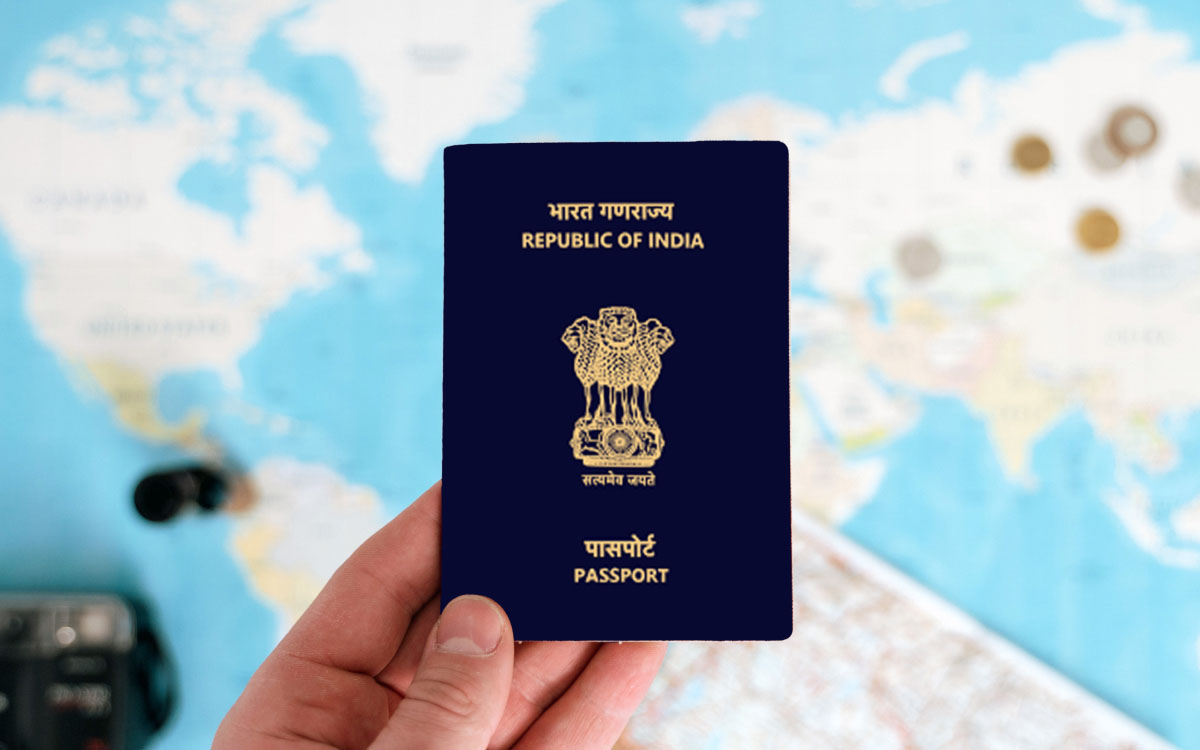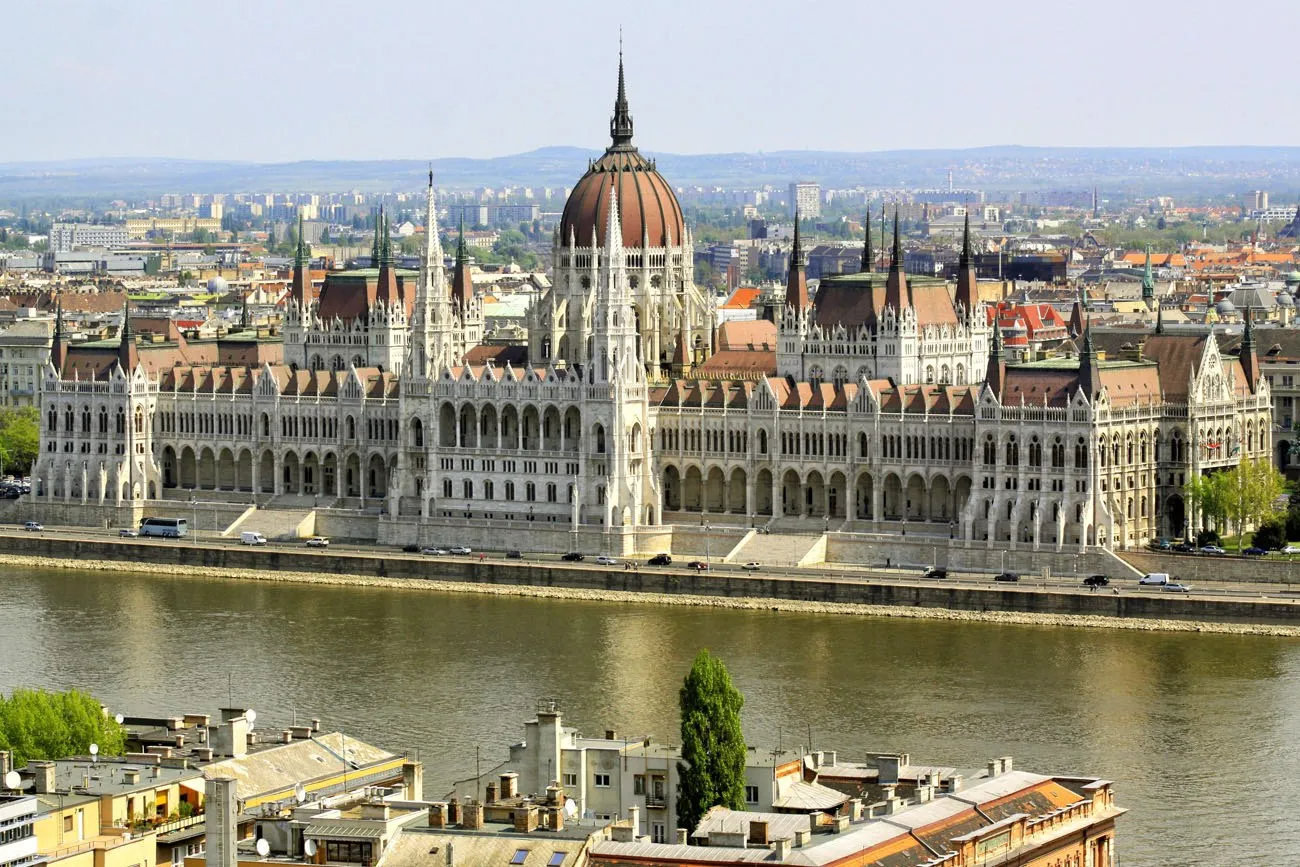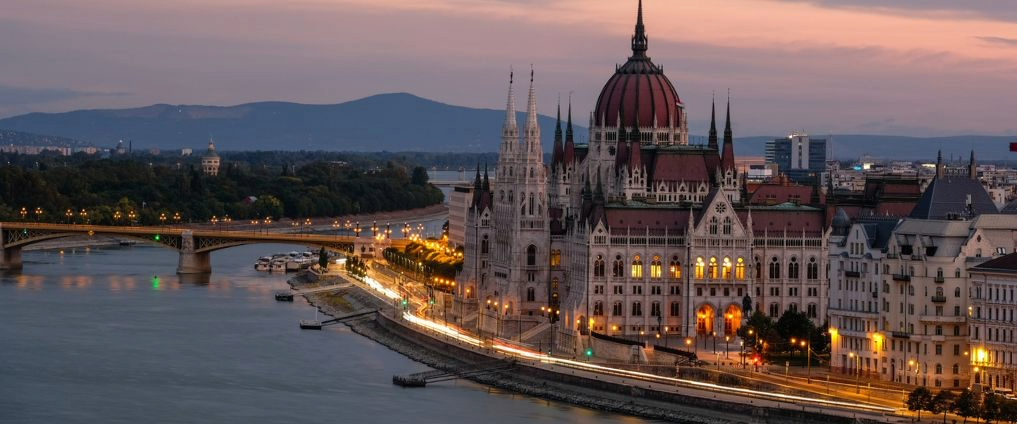The world gets smaller every day as borders become more and more permeable, and countless people are therefore seeking to move around the globe. One key remains unnoticed It is first important to understand that there is a big difference between a visa and a residence permit (even if you are an investor looking for new business opportunities, or high-net-worth individual seeking lifestyle improvements, or entrepreneur who wants to build your worldwide footprint) While they both allow foreign nationals to remain in a particular country, or be safe from deportation, they have different uses and rights, but most importantly come with different avenues towards long-term residency or citizenship.
To guide you in your personal, financial, and mobility needs,we will break down the main gaps between visas and residence permits. It also provides a deeper dive into the concepts of visas; and how do visas operate vis-à-vis the domestic context, adding to this line also discussing residence permits long side indulging in citizenship as well as residency by investment programs that have become very popular among investors, entrepreneurs, and global citizens.
Introduction: The Basics of International Mobility
let’s address primary question: what roles does international mobility play? To HNWIs and international citizens the freedom of movement translates to opportunities to transact in new markets or environments, improved living standards, security, better value for taxes and improved education for family members. In todays increasingly integrated global environment citizens demand the right of mobility: the right to choose where to live, work, invest and ultimately gain residency and citizenship.
Moreover, when it comes to this mobility’s realization, despite the fact that different legal instruments exist, the two principal routes are visa and residence permit. On the first glance these may seem similar because both let you remain in a foreign country. But all exist for a purpose and provide differential degrees of rights and other privileges. The selection of each depends on your goals; for it may be a short visit, a short term working stay, or a long term immigration.
What is a Visa?
A temporary permit enabling a foreigner to come, dwell, or transit in a country for intended purpose and for a given duration is visa. It should however be appreciated that there are different categories of visa but these are intended for short term visits to the host country and are generally granted on the basis of the reason for the visit. Now why don’t you consider the various classifications of visa and their restrictions?
Types of Visas:
- Tourist Visa: This is probably the most popular type of visa and lets a person enter a country for tourism or other short term purposes. Staying period may range from a few days to several months but this kind of visa does not permit the holder to take up any form of employment or business.
- Business Visa: Issued for people who require temporary entry into a country for business-related reasons such as meeting, conferences, or signing business deals, the business visa is issued. But it does not grant the holder the right to seek an employment in the country of visit or in the host country as the case may be. Business visas are relatively short ranging from several days to a few months depending on the country of destination.
- Student Visa: This visa is issued to international students who want to study in another country. It is normally valid for the duration of the study program; however, it permits work, though limited, in some countries and is primarily intended to stay valid during the period of study.
- Work Visa: A work visa on the other hand is issued to the foreign citizen who has got a job in another country. It authorizes the person for working for a certain company or employer and is often associated with the duration of the contract. The work visa can be extended after some time but is mostly a temporary visa.
- Investor Visa: Most countries have invested visa programs for those people who want to obtain a visa by investing a large amount of money. These visas are normally regarded as the first step toward residency programs, particularly those countries that have RBI or CBI programs. This visa enables the investor to visit and reside in the country with an option for getting a residence permit.
Limitations of Visas:
Limitations of Visas:
- Time-limited: While residence permits are, as a rule, issued for a long-term stay, visas are usually produced for short-term visits. The validity of the visa depends on the kind of visa to be granted but can be as low as 30 days or as long as a few years. When a visa expires the holder is allowed to either leave the country or to apply for an extension (depending on the visa type).
- Purpose-specific: Visas are usually issued for certain activities tourism, studies, trade, investment, etc. They are accompanied by conditions that limit the kind of actions that one can undertake while in the country. For example, tourist visa does not permit you to work and a student visa will not permit you to work full-time.
In conclusion, visas appropriate for people with brief and definite purpose of visit as per the classification formal or study for example to attend a business meeting, or Studies or even for tourism. If you plan to be in the country for longer or do activities that are rather more encompassing such as working, investing, or living fully in the country, getting a visa may not be perfect.

What is a Residence Permit?
Residence permit is an official document, which granted to a foreigner to reside in a given state for an extended period. Residence permits usually grant the holder larger freedom as compared to a visa, which includes the right to work, study, and do business. Residence permits are different from visas because they are intended for those who wish to become a permanent resident of a country for employment, family, investment purpose or any other.
Purpose of a Residence Permit:
Residence permits are essentially long-term visas that are meant for people who plan to live in a country for more than some months, with a view toward getting a permanent residency or nationality. Investors, businessmen and other world citizens who would like to live long in definite country or region, to have an opportunity to use tax preferences, or just to have a better life are interested in them.
Types of Residence Permits:
- Temporary Residence Permit: This type of permit is normally valid for a given period, which may be one year, two years, three years, four years or five years. Residence permits that have been issued for a limited period of time can generally be extended, and these permits afford the holder more rights, including the right to work, to access medical services in the country or to attend school with children.
- Permanent Residence Permit: In addition to meeting temporary residence requirements like living in the country for some years, paying taxes and not being convicted of any crimes, people may be granted permanent residence. PR allows the individual to live in the country indefinitely with almost all the privileges of a citizen excluding that of voting in national elections.
- Investment-Based Residence Permits: Investment has residence permits for many countries, which make up investment programs. Examples of such national Golden Visa programs exist in Portugal, Spain and Greece. I obtained these permits after investing in the country through purchase of property, establishment of a business or investment in government bonds. These benefits go to the family of the investor and in some instances, it creates a window to get an automatic green card.
The Benefits of a Residence Permit:
Longer Duration: In contrast with visas, residence permits are intended for long stay of a person in the given country. They are usually renewable and some of them result in patients being granted residence permit or even citizenship after some time.
- Broader Rights: As a general rule, a residence permit is more liberal than a visa. For instance, the holder of residence permit has the right to work, study and receive local services such as healthcare. They also have the rights to Sponsor a family member(s) to join them in the country under the Immigration Act family reunion provisions.
- Potential Path to Citizenship: Another difference between the two legal permits is that, while getting a visa, people do not receive the right to citizenship, but with residence permits for several years, they can become citizens. When one fits the necessary residence criteria as prescribed by the country’s legislation, then such a person can apply either for the permanent residency or naturalization.
Therefore, if your plan is to stay in a country for a long time for Residence, work or investment, it is more appropriate to use permit as compared to visa. It has more advantages and is more flexible than the employer sponsored skilled immigration and provides the chance of getting permanent residence or citizenship.
Key Differences Between a Visa and a Residence Permit
Now that we’ve learned what visas and residence permits are, let’s provide some more detailed information about the differences between them. Getting to know these differences will assist you in decision making as to which option is more suitable for your desires for the future, financial stability, and mobility.
Duration of Stay
- Visa: A visa may be valid for a short term stay, that is, from 30 days to a few years. Even though it is renewable, it is mostly for short term use only.
- Residence Permit: A residence permit is meant to cover long-term stay. It usually begins as a legal working permit but can be renewed; in most cases, it opens the flood gates to permanent residency and even citizenship.
Rights and Benefits
- Visa: A visa is limited in some way. For instance, a tourist visa cannot permit the holder to work, and a student visa also means that the person is only allowed to work in certain capacity.
- Residence Permit: A residence permit give a broader permission. The permit holders can work, obtain local health care, and in some cases join social security systems. They can also request family reunion, i.e., bring spouses and children to join them in the host country.

Purpose and Flexibility
- Visa: A visa is most often granted for a particular type of activity like tourism, study, business purposes, etc., and the holder cannot take up any other activity, such as work or residence.
- Residence Permit: Residence permits are more liberal in terms of residing, working and establishing one’s self in the country. They are particularly useful for people who intend to live in the property for a long time due to job or business, or to start a family.
Path to Citizenship
- Visa: To be precise, most visas out there do not offer a path that will allow an individual to become a citizen of that country. They are issued for a limited period of time, and the person has to extend them or change for a residence permit if he or she plans to stay longer.
- Residence Permit: Most residence permits especially those earned through investment or long-term work, allow for the conversion to a permanent residency and citizenship. Once the required residency has been met (which differs from country to country) the holder of a permit can apply for naturalization.
Travel and Mobility
- Visa: Immigrants may have problems of re-entry or internal mobility may also be restricted in the granting of Visa. For example, Schengen visa enables one to travel within Schengen Area but only for the period the visa permit.
- Residence Permit: In some cases including those in the European Union or Schengen Area the residence permit holder enjoy a higher level of mobility. They are able to move from one country to another within the region and in some instances practice in more than one country without having to process more paperwork.
Investment-Based Residency and Visa Programs
Over the last few years, RBI and CBI have emerged as popular investment avenues as more nations look for sources of foreign investment. These programs offer people and their families an opportunity to legally live in foreign countries in exchange for considerable financial contribution to the country’s economy in the form of investments in property, companies or treasury bonds. This is how the programs operate and what they provide:
Investor Visa
Certain nations including the United States (through the EB-5 Visa) and the United Kingdom (through the Tier 1 Investor Visa) provide the investor visas. These visas allow people with intention of entering the country through investment to do so. In most cases investor visas entail a huge amount of investment, often in the range of millions of dollars, and entitle the holder to temporary residence. However, these visas make it easy to qualify for permanent residence or citizenship after meeting the necessary investments.
Residency by Investment (RBI)
Residency by Investment is a process which enables people to obtain residence permits in the course of making an investment in the country. The investment can be in the form of purchase of property, generation of employment or purchase of government securities. Popular RBI programs include:
- Portugal Golden Visa: Perhaps one of the most famous programs in Europe, the Portugal Golden Visa permits people to gain residency upon investing in a property or creating employment. The program grants the investor and his/her family residency permit and the possibility to attain permanent residency or citizenship after five years.
- Spain Golden Visa: Spain has a similar program that permits investors to gain residency based on real estate investments or business ventures. The visa also allows one to travel to other Schengen member countries without a visa and a holder of this visa can apply for permanent residence or citizenship after 5 years.
- Greece Golden Visa: Golden Visa program of Greece is one of the cheapest in Europe. It avails the opportunity to invest in Real Estate and give the investor visa free movement within the Schengen countries and an option to apply for permanent residence or naturalization to the country after a period of time.
Citizenship by Investment (CBI)
Citizenship by Investment programmes enable a person to be granted full citizenship of a country upon making a large investment. Such schemes are comparatively shorter than some other immigration schemes; one gets the citizenship in months. Some of the most popular CBI programs are in Caribbean countries; St Kitts and Nevis, Antigua and Barbuda, and Dominica. Such programs usually involve a contribution to a national development fund or the purchase of real estate.
Benefits of RBI and CBI Programs:
- Global Mobility: RCBI programs add flexibility into people’s lives since they grant opportunities for visa-free travel to more countries. For instance, the Portugal Golden Visa grant one visa-free movement in the Schengen Zone, and some CBI’s grant visa-free travel to over 150 countries.
- Tax Efficiency: It is important to note that most investors enroll in RBI and CBI programs for tax related matters. Some countries such as Portugal and Malta have schemes that allow individuals enjoying tax free on foreign income or on income generated within the country at a certain rate.
- Family Benefits: Spouses and dependent children are also included in the investor’s program or known as RBI and CBI which means that they will also be granted residency or citizenship rights.
- Path to Citizenship: Another major attraction for investment based programs is that it leads to immigration or more specifically, to citizenship. Some of the programs such as CBI grant the immigrants’ citizenship upon arrival while others such as RBI grant citizenship after some time of staying in the country.
Choosing the Right Option for You
Before choosing between a visa and a residence permit, or going for residency by investment, it will be wise to establish short and long-term objectives. Do you want to use a country for a short period for a specific reason or do you have a plan to live long in that country?
In case your plan is for a short time like going for a business meeting, a vacation or study for few months a visa will suffice.
If your intention is for longer stay for instance due to job transfer, business or to improve on ones standards of living a residence permit is more suitable.• If you intend to invest in a country and get a path through investment, then you might consider getting an Investor Visa.your short-term and long-term goals. Are you looking for short-term access to a country for a specific purpose, or do you aim to establish long-term roots there? Here are some factors to keep in mind.

Short-Term vs. Long-Term Goals
If your goal is short-term such as attending a business meeting, going on vacation, or studying for a few months a visa may be sufficient.
If your objective is long-term, like relocating for work, establishing a business, or seeking a better lifestyle, a residence permit is more appropriate.
Investment and Mobility Needs:
If you’re looking to invest in a country and gain access through investment, an Investor Visa might be a good starting point. However, many of the investor visas can result in the issuance of the residence permit, and as such, are suitable for the people with intentions of permanent residence in the country.
If the physical mobility of the applicant or their family is important then one needs to take into account the countries with which the residence or citizenship will allow visa-free travel.your short-term and long-term goals. Are you looking for short-term access to a country for a specific purpose, or do you aim to establish long-term roots there? Here are some factors to keep in mind:
Short-Term vs. Long-Term Goals:
If your goal is short-term such as attending a business meeting, going on vacation, or studying for a few months a visa may be sufficient.
If your objective is long-term, like relocating for work, establishing a business, or seeking a better lifestyle, a residence permit is more appropriate.
Investment and Mobility Needs:
If you’re looking to invest in a country and gain access through investment, an Investor Visa might be a good starting point. However, many investor visas can lead to residence permits, making them ideal for individuals who wish to establish long-term residency.
If mobility is a key concern, consider countries that offer visa-free travel through their residence or citizenship programs. For instance, Schengen Zone grants mobility across the 26 countries of Europe for those that have a residence permit.• If you plan on getting a job in the host country or if you plan on moving with your family then a residence permit is normally more lenient.o consider your short-term and long-term goals. Are you looking for short-term access to a country for a specific purpose, or do you aim to establish long-term roots there? Here are some factors to keep in mind:
Short-Term vs. Long-Term Goals:
If your goal is short-term such as attending a business meeting, going on vacation, or studying for a few months a visa may be sufficient.
If your objective is long-term, like relocating for work, establishing a business, or seeking a better lifestyle, a residence permit is more appropriate.
Investment and Mobility Needs:
If you’re looking to invest in a country and gain access through investment, an Investor Visa might be a good starting point. However, many investor visas can lead to residence permits, making them ideal for individuals who wish to establish long-term residency.
If mobility is a key concern, consider countries that offer visa-free travel through their residence or citizenship programs. For example, the Schengen Zone allows freedom of movement across 26 European countries for those with residence permits.
Work and Family Considerations:
If you intend to work in the host country or bring your family along, a residence permit is usually more flexible. For instance, it enables you to participate in a wider category of activities including employment and family reunion.• If becoming a citizen is your end game, concentrate on residence or citizenship through investment that has a viable process to naturalization.g-term goals. Are you looking for short-term access to a country for a specific purpose, or do you aim to establish long-term roots there? Here are some factors to keep in mind:
Short-Term vs. Long-Term Goals:
If your goal is short-term such as attending a business meeting, going on vacation, or studying for a few months a visa may be sufficient.
If your objective is long-term, like relocating for work, establishing a business, or seeking a better lifestyle, a residence permit is more appropriate.
Investment and Mobility Needs:
If you’re looking to invest in a country and gain access through investment, an Investor Visa might be a good starting point. However, many investor visas can lead to residence permits, making them ideal for individuals who wish to establish long-term residency.
If mobility is a key concern, consider countries that offer visa-free travel through their residence or citizenship programs. For example, the Schengen Zone allows freedom of movement across 26 European countries for those with residence permits.
Work and Family Considerations:
If you intend to work in the host country or bring your family along, a residence permit is usually more flexible. It allows you to engage in a broader range of activities, from employment to family reunification.
Path to Citizenship:
If gaining citizenship is your ultimate goal, focus on residence or citizenship by investment programs that offer a clear pathway to naturalization. Some of the countries that provide options to get the citizenship after meeting the necessary residency include Portugal, Spain and Greece and so on while others like St. Kitts and Nevis provide options for getting the citizenship through direct investment.
Conclusion: Visa or Residence Permit – What’s Best for You?
Altogether it could be concluded that the choice of a visa and a residence permit is more or less individual depending on specific personal, financial, and future plans. A visa can be useful especially when one only requires temporary right of entry into a country for whichever reason; business, tourism or study. But if you want long term gains such as being able to live, work and later on gain residency or even citizenship, then the residence permit is more preferable.
To the investors and people with high net worth, residence and citizenship through investment is one of the most important and effective ways to obtain a second or even multiple second passports, to plan the taxation and to gain the access to the new markets. The right program will let you maximize the advantages of living in a different country – from
a higher quality of life to more opportunities for work, travel and finances.
As a rule, it is unwise to make any decision without consulting immigration and financial advisors. This way, you make sure that it corresponds to your vision of the long-term future, be it the expansion of the business, moving with a family, or becoming a more mobile citizen of the world.











